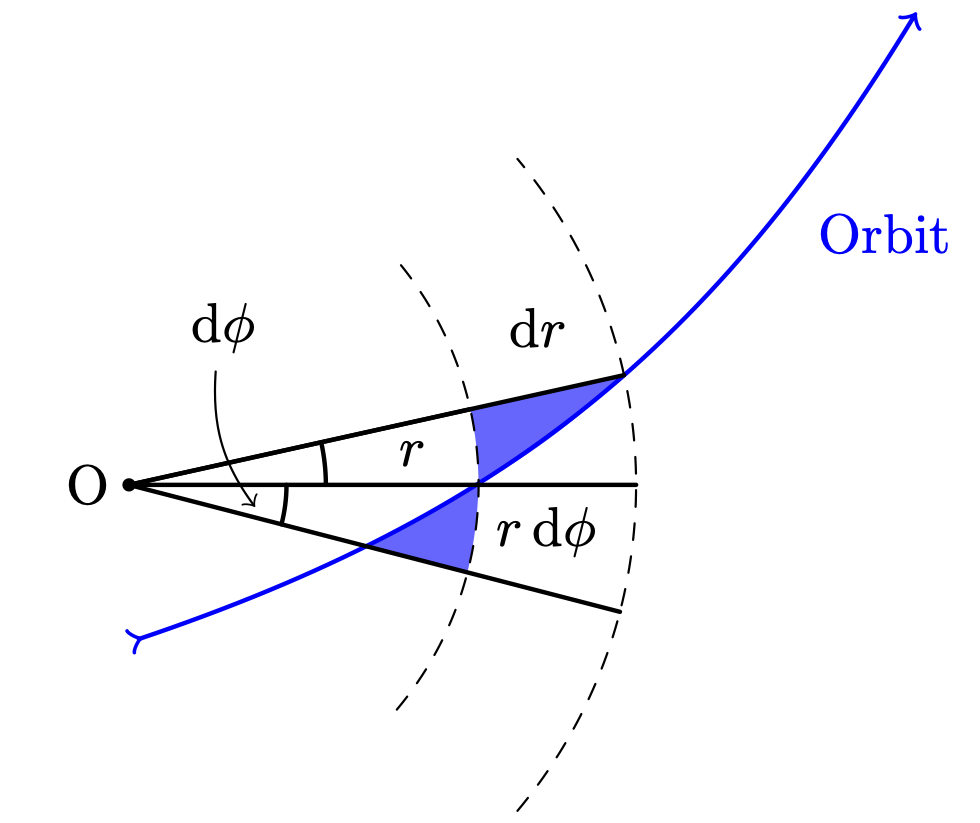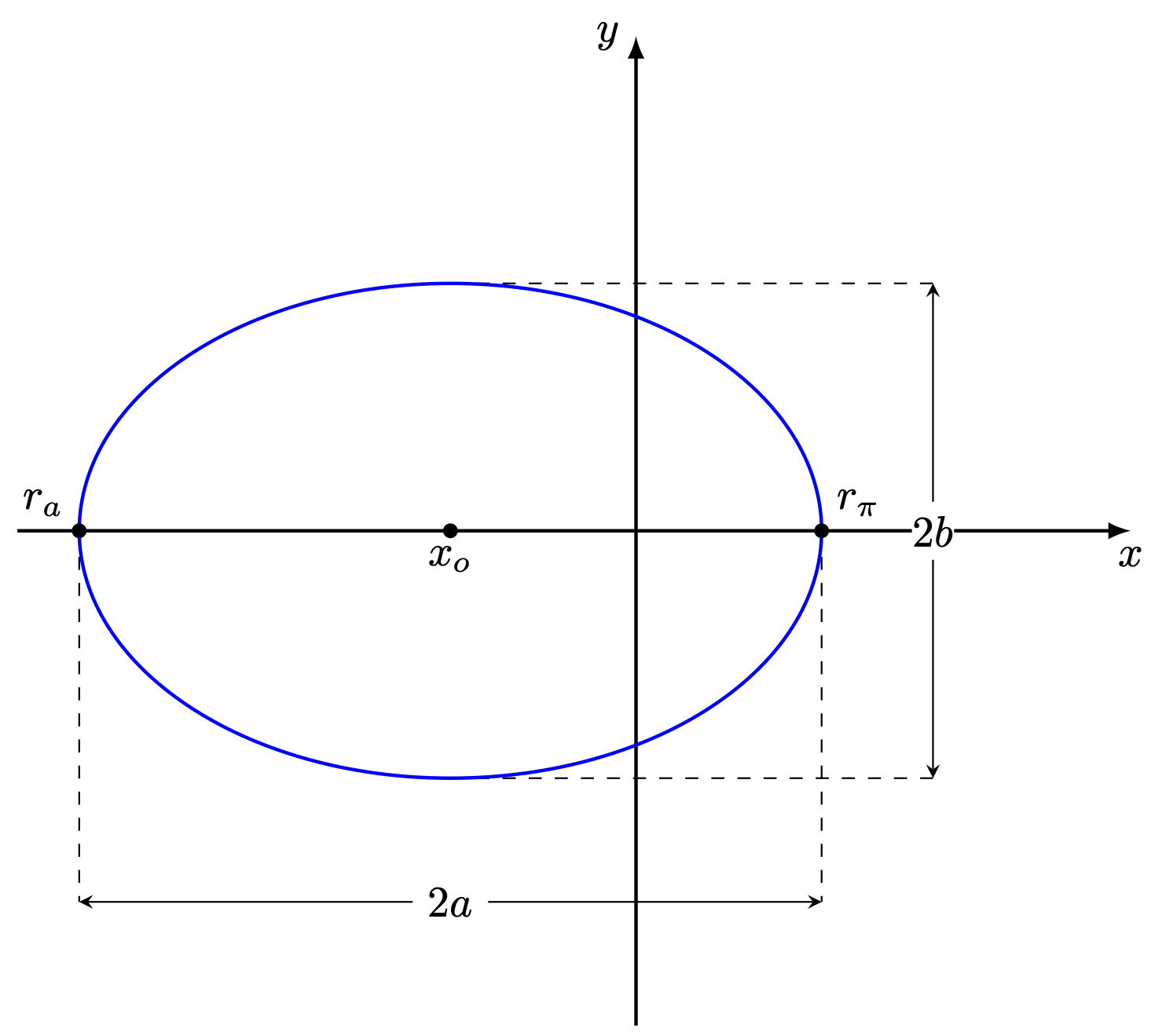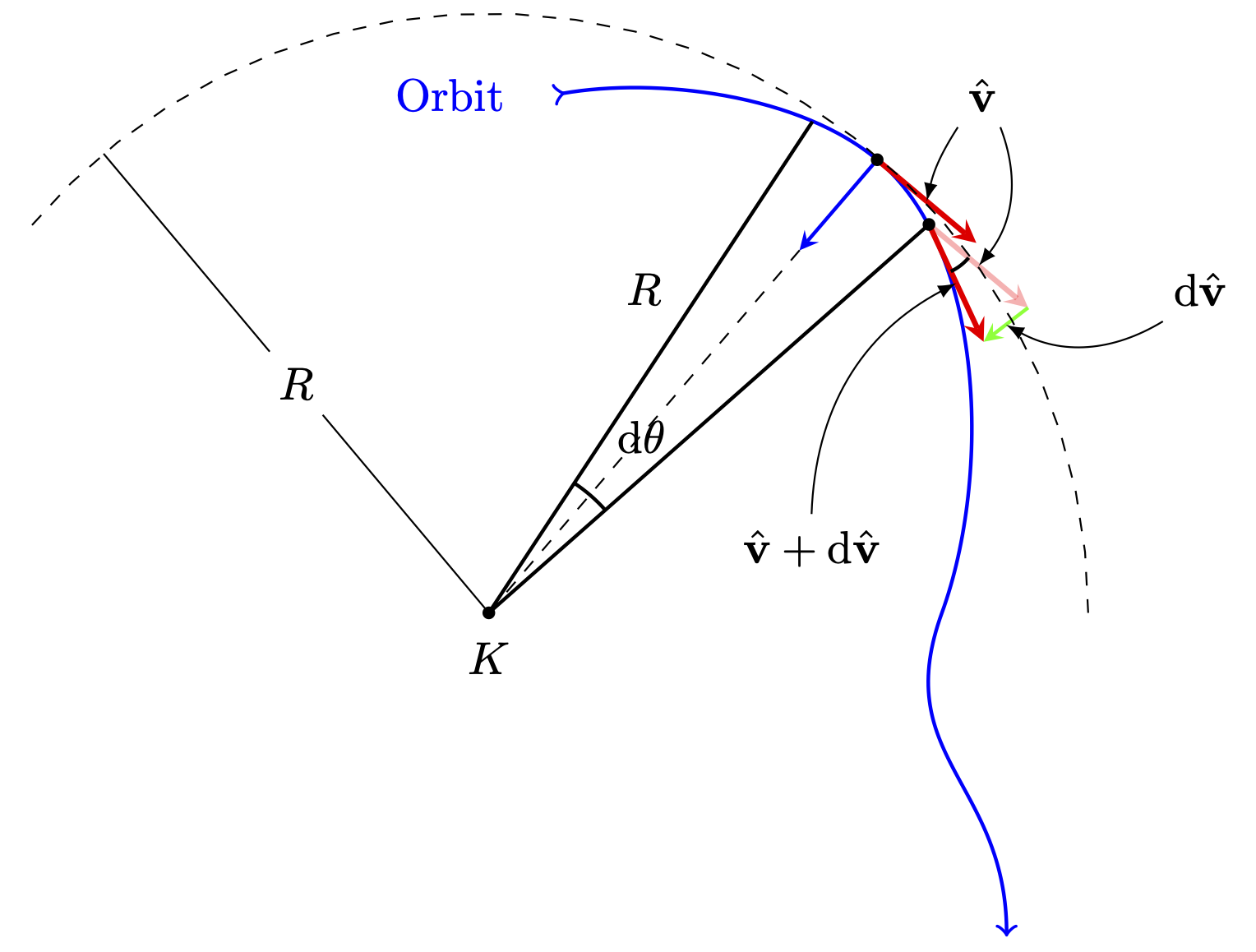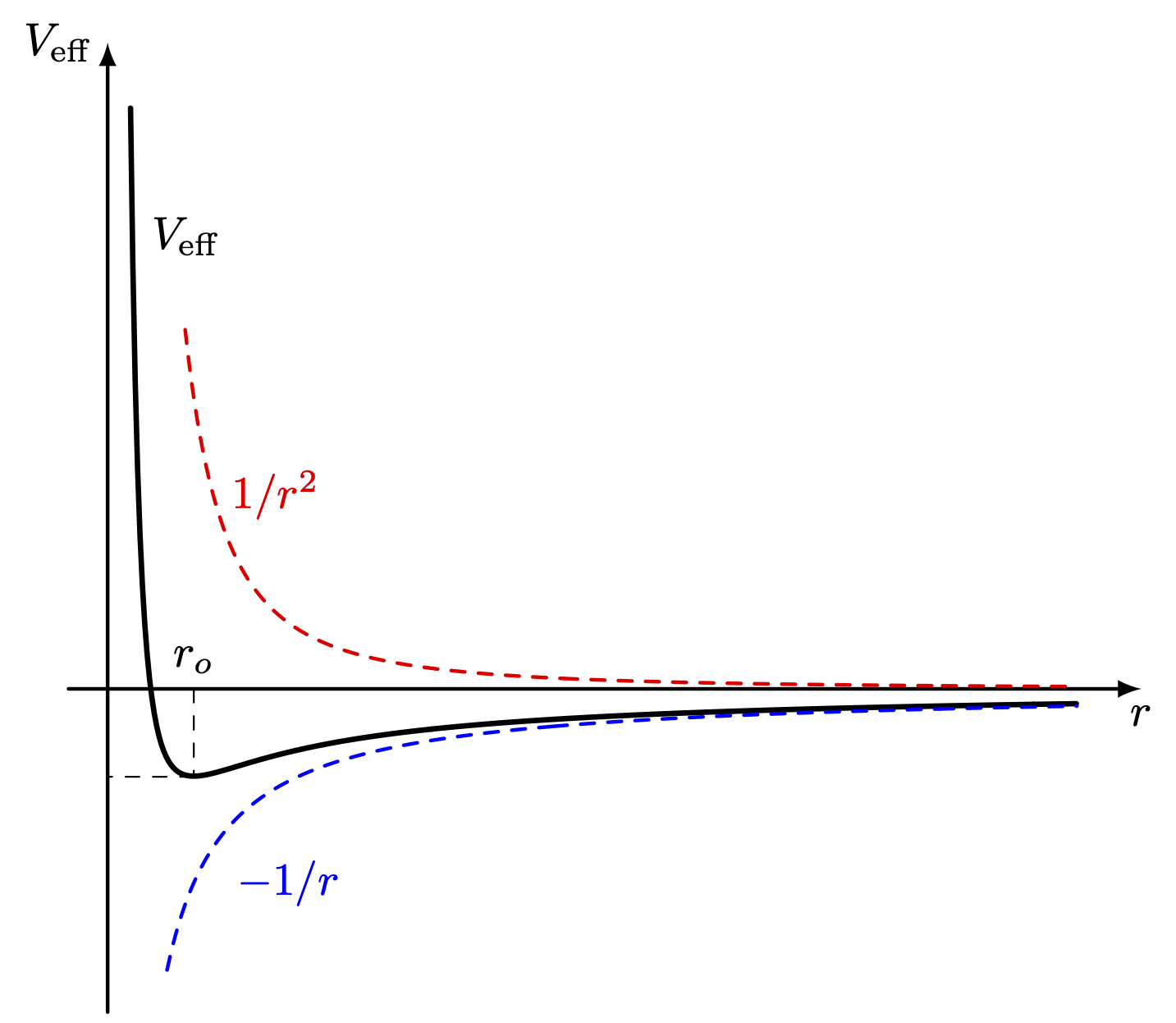
\documentclass[border=2pt]{standalone}
% Drawing
\usepackage{tikz}
% Notation
\usepackage{physics, bm}
% Tikz Library
\usetikzlibrary{angles, quotes}
% Newcommand
%% Polar Coordinates
\newcommand{\pcord}[3]{\coordinate (#3) at ({#1*cos(#2)},{#1*sin(#2)});}
\begin{document}
% Macros
\def\r{2.22}
\def\rr{3.22}
\begin{tikzpicture}[line cap = round]
% Grid
% \draw[thin, dotted] (0,0) grid (8,8);
% \foreach \i in {1,...,8}
% {
% \node at (\i,-2ex) {\i};
% }
% \foreach \i in {1,...,8}
% {
% \node at (-2ex,\i) {\i};
% }
% \node at (-2ex,-2ex) {0};
% Coordinates
\coordinate (O) at (0,0);
\pcord{\rr}{12.5}{A}
\pcord{\r}{12.5}{B}
\pcord{\rr}{-14.5}{C}
\pcord{\r}{-14.5}{D}
\pcord{1.54}{-14.5}{E}
\coordinate (F) at (\r,0);
% Nodes
% \node at (A) {A};
% \node at (B) {B};
% \node at (C) {C};
% \node at (D) {D};
% \node at (E) {E};
% \node at (F) {F};
% Orbit
\draw[shift={(0,-1)}, thick, >->, blue] (0,0) to [bend right = 20] (5,4) node [shift={(-0.2,-1.4)}] {Orbit};
% Nodes
\node at (2.6,1) {$\dd{r}$};
\node at (1.8,0.2) {$r$};
\node at (2.65,-0.3) {$r\dd{\phi}$};
\node (a) at (0.6,1) {$\dd\phi$};
% Paths
\path[fill=blue, opacity=0.6] (F) to[bend right = 5] (B) -- (A) to[bend left = 6] cycle;
\path[fill=blue, opacity=0.6] (F) to[bend left = 5] (D) -- (E) to[bend right = 4] cycle;
% Circles
\draw[domain=-40:40, dashed, variable=\t, samples=100] plot ({\r*cos(\t)},{\r*sin(\t)});
\draw[domain=-40:40, dashed, variable=\t, samples=100] plot ({\rr*cos(\t)},{\rr*sin(\t)});
% Lines
\draw[thick] (O) -- (\rr,0);
\draw[thick] (O) -- (A);
\draw[thick] (O) -- (B);
\draw[thick] (O) -- (C);
\draw[->] (a) to[bend right=20] (0.8,-0.14);
% Point
\draw[fill=black] (0,0) circle [radius=1pt] node [left] {$\mathrm{O}$};
% Angles
\pic[draw, thick, angle radius = 1cm] {angle = E--O--F};
\pic[draw, thick, angle radius = 1.25cm] {angle = F--O--B};
\end{tikzpicture}
\end{document}
Kepler_Second_Law.tex







